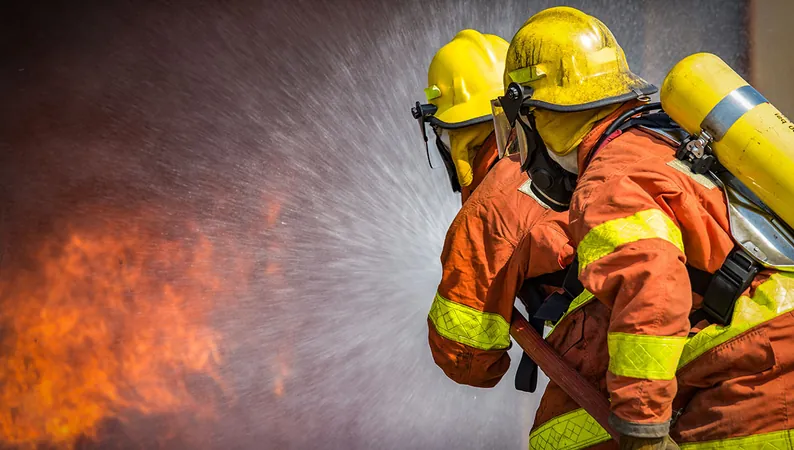
Revolutionary Heart Health Check Could Save Firefighters' Lives
2025-07-18
Author: Daniel
Transforming Firefighter Health: A Game-Changer in Early Detection
In a groundbreaking study out of Montreal, researchers have uncovered that adding coronary computed tomography angiography (CCTA) with quantitative coronary plaque analysis (QCPA) to annual firefighter physicals could significantly enhance early detection of cardiovascular disease among these high-risk professionals.
With over 300 participants, mostly young and fit firefighters, the data revealed stunning results: 3.6% required a diagnostic catheterization, while 28.6% were referred to a cardiologist for further management. Alarmingly, even among those with zero coronary artery calcium, over 80% showcased noncalcified plaque, with a couple of cases resulting in urgent treatment for obstructive lesions.
Shocking Results: The Hidden Dangers
Co-principal investigator Dr. Carrie Burns expressed her astonishment at the results, stating, "We expected a few would show a calcium score of zero but still have some plaque; however, finding 83% with zero calcium but noncalcified plaque was shocking." This revelation calls for a serious re-evaluation of traditional assessment methods in detecting heart issues in firefighters.
The urgency of these findings is underscored by the fact that sudden cardiac death accounts for 40% of line-of-duty deaths among firefighters. Co-principal investigator Jeremy Gage noted that the SCOT-HEART trial inspired this critical exploration into how CCTA might bolster firefighter health.
Urgent Cases Discovered: CCTA Performance Highlights Risks
The innovative use of CCTA and AI-driven QCPA was conducted on 309 firefighters averaging 47 years of age during their mandated physical exams. These exams, which included lifestyle risk assessments, revealed that 34% of participants had coronary artery calcium, while CCTA identified coronary artery disease in a staggering 88% of those individuals.
Among the firefighters with no calcium, an alarming 83.3% had noncalcified plaque, raising serious questions about current reliance on standard health metrics like the PREVENT score, which failed to identify most at-risk individuals.
Taking Control: Empowering Firefighters to Prioritize Heart Health
One of the most rewarding aspects for the research team has been witnessing how individuals identified with urgent health concerns are proactively managing their conditions. Dr. Burns shares, "It’s fulfilling to see patients taking control of their health and coming regularly for their appointments, showing genuine interest in their health metrics, despite some initial fears about medication and job safety."
To continue this vital screening effort, the team is expanding the program to include younger firefighters aged 35 and above, integrating Lp(a) measurements to optimize heart health monitoring.
A Call to Action for Healthier First Responders
This research emphasizes the critical necessity of innovative health assessments like CCTA for firefighters. As champions of public safety, it's now imperative that we prioritize their heart health to ensure they can continue to serve and protect our communities.




 Brasil (PT)
Brasil (PT)
 Canada (EN)
Canada (EN)
 Chile (ES)
Chile (ES)
 Česko (CS)
Česko (CS)
 대한민국 (KO)
대한민국 (KO)
 España (ES)
España (ES)
 France (FR)
France (FR)
 Hong Kong (EN)
Hong Kong (EN)
 Italia (IT)
Italia (IT)
 日本 (JA)
日本 (JA)
 Magyarország (HU)
Magyarország (HU)
 Norge (NO)
Norge (NO)
 Polska (PL)
Polska (PL)
 Schweiz (DE)
Schweiz (DE)
 Singapore (EN)
Singapore (EN)
 Sverige (SV)
Sverige (SV)
 Suomi (FI)
Suomi (FI)
 Türkiye (TR)
Türkiye (TR)
 الإمارات العربية المتحدة (AR)
الإمارات العربية المتحدة (AR)